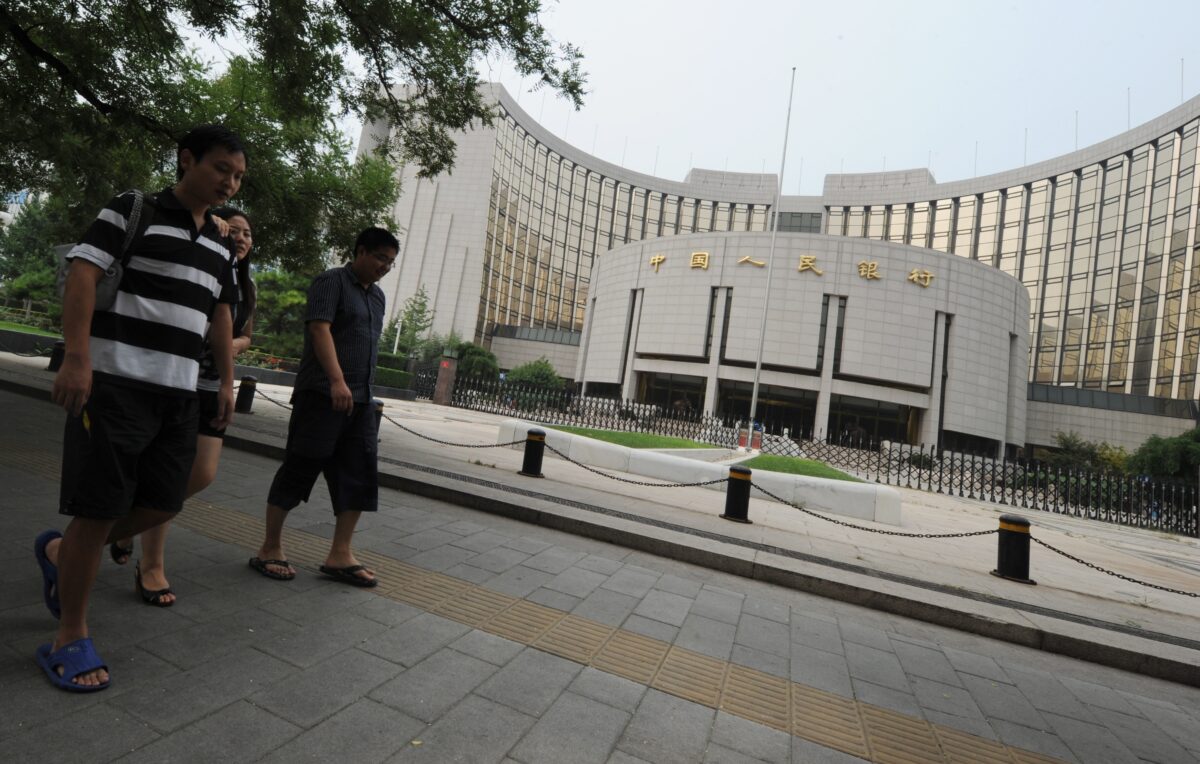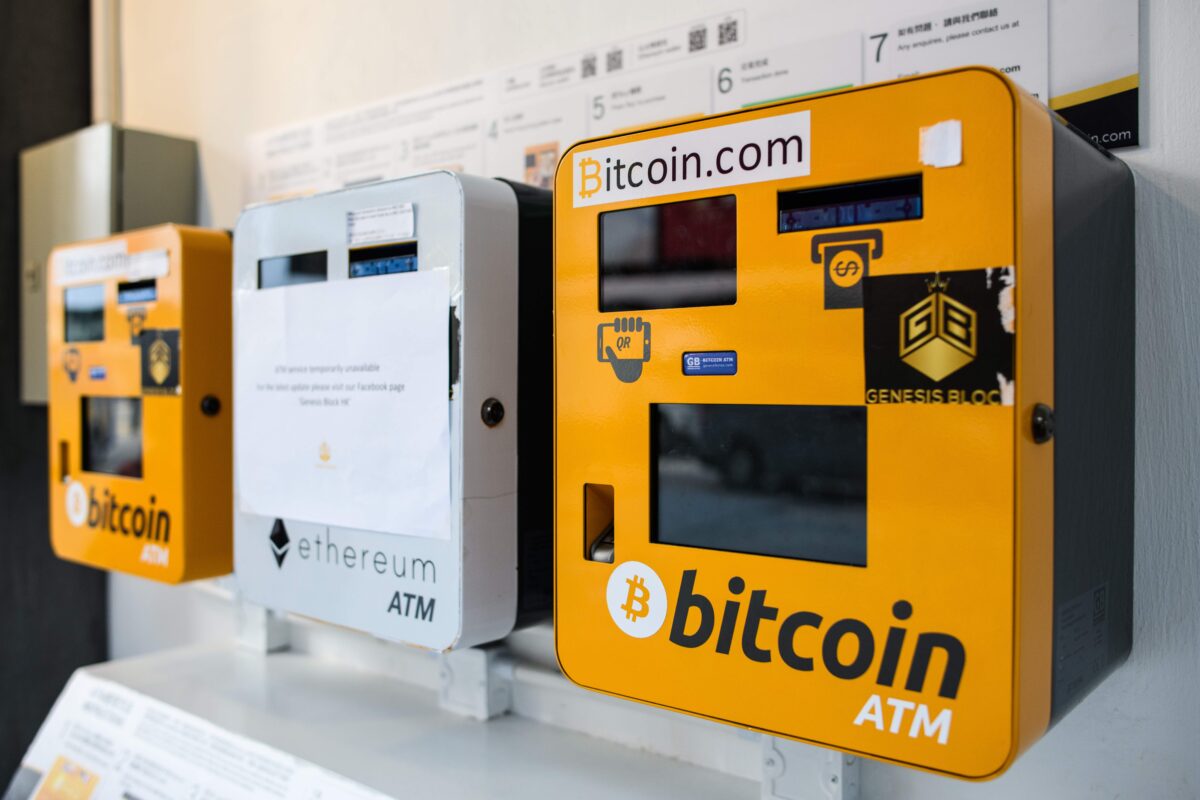
News Analysis
The Chinese Communist Party (CCP) has been pushing its digital currency project in recent years. The CCP’s central bank has been conducting research on digital currencies since 2014. In August 2019, a report by the CCP’s mouthpiece Xinhua News Agency said that the Central Bank’s Digital Currency Research Institute, established in 2017, had so far “applied for 74 patents involving digital currency technology.” Another Xinhua report in October 2019 revealed how much importance the CCP attached to digital currency and blockchain technology. According to the report, Xi Jinping, the CCP’s leader, suggested during the 18th collective study session of the Politburo that blockchain technology needs to “play a bigger role in building China into a cyber power, developing the digital economy, and helping economic and social development.”
Following that, in 2020, the CCP’s Ministry of Commerce issued a document requiring 21 provinces and municipalities to implement a “General Pilot Program for Comprehensively Deepening the Innovative Development of Service and Trade.” One of the tasks listed in the program is to “carry out digital renminbi (yuan) currency pilot projects in Beijing, Tianjin, Hebei province, the Yangtze River Delta, Guangdong-Hong Kong-Macao Greater Bay Area (GBA), and eligible pilot areas in central and western China.”

Since then there have been reports in the CCP’s media about the piloting of the digital yuan currency in a number of places, including two cities—Shenzhen and Changsha—and Hainan province in southern China. Cities in eastern China included in the program are Shanghai and Suzhou. Qingdao and Dalian are two cities from northern China to be tested with the digital currency project. Other cities and areas include Xi’an (northwestern China), Chengdu (southwestern China), and Xiongan New Area (in Hebei province, about 90 miles south of Beijing).
At the CCP’s National People’s Congress held in March this year, the CCP explicitly proposed to “build a new advantage in the digital economy” and “actively participate in the formulation of international rules and standards for digital technologies such as data security, digital currency, and digital taxation.”
With a strong push to digitize its currency, active participation in setting international standards, and the starting of testing cross-border digital payments, it is clear that the CCP’s ambitions extend beyond its national borders.
CCP Seeks ‘One Globe, Two Systems’
Liang Xinjun, a Chinese expert in the field of virtual and digital money and former co-founder of Fosun Group, said in a speech on April 30 that “realizing seamless conversion of sovereign digital currency (Digital Currency Electronic Payment, or DCEP in short) and community digital currency in more countries, and then realizing global payment circulation, is a financial solution of the ‘One Globe, Two Systems.‘”
The sovereign digital currency, or DCEP, that Liang refers to is a digital form of the yuan issued by the People’s Bank of China, which has exactly the same functions and attributes as fiat banknotes, is backed by the sovereign credit of China, and has an unlimited legal tender.
Community currency, a currency issued by a specific community itself, can only be circulated in a specific community based on the acceptance of community members. It has developed from traditional plastic cards to cellphone virtual currency software to the current blockchain technology and has also developed into digital currency.
The “One Globe, Two Systems” that Liang mentioned is a CCP saying and refers to both the communist totalitarian system represented by the CCP and the western democratic system represented by the United States that have coexisted in the world.
Liang’s words revealed the CCP’s ambition to establish its own financial digital system.
The CCP’s Global Financial Hegemony Ambition
The CCP set up CIPS (Cross-border Inter-bank Payment System), which is its own yuan-based cross-border payment system, similar to SWIFT (Society for Worldwide Interbank Financial Telecommunication) in Shanghai in July 2015. According to the CIPS website, “as of the end of 2019, there were 33 direct participants and 903 indirect participants in the CIPS system, an increase of 74 percent and 413 percent respectively from the initial launch.
“The system now covers 94 countries and regions on six continents, and CIPS’s business actually covers more than 3,000 banking legal entities in 167 countries and regions.” By 2021, “the cumulative payment amount reached 151 million yuan, and the business covers many countries and regions such as Hong Kong, Malaysia, Australia, and South Africa.”

But the CCP also realizes that it is not in a position to immediately threaten the U.S. dollar in the current international payment system. The CCP’s vigorous push for digital currencies and strict regulation of cryptocurrencies seems to prove that it is increasing its efforts of research and promotion in these areas in order to use them as a financial weapon against the United States.
Dovey Wan, founding partner at Primitive Ventures, “a global venture investment firm with a focus on blockchain and related technologies,” published a long article on Coindesk on May 17, 2019, titled “Digital Renminbi: A Fiat Coin to Make M0 Great Again.”
There are some interesting quotations from her article that are worth noting.
“Contrary to what many think, China does not oppose blockchain technology,” said Wan at the beginning of her article.
Wan was of the opinion that the digital Chinese currency can have great political and economical influence. “If successful, this digital RMB (yuan) project could expand the [CCP] central bank’s influence over both the domestic and international economy. It has broad implications for the geopolitics of money and for the future of private cryptocurrencies such as bitcoin,” she wrote in her article.
In her analysis, blockchain technology can help the CCP’s digital currency project.
“Thanks to blockchain’s traceability and programmability,” she wrote, “PBOC [People’s Bank of China, the CCP’s central bank] can write rules at the code level regarding where digital RMB can and cannot flow to.”
“If it wants to cool down the housing market, for example, it can simply set a program preventing digital RMB from entering the real estate sector,” she wrote.
“A digital RMB could even strengthen China’s influence overseas,” she added.
“If the One Belt One Road initiative succeeds, a digital, borderless, stable currency could facilitate international trade among its 60-plus member countries. This, coupled with the fact that China is the biggest creditor to Venezuela and it holds over 14 percent of African countries’ sovereign debt, would position it to offer a digital RMB as the next reserve currency of emerging-market economies.”
The promotion of a digital Chinese currency would, she wrote, “be highly synergetic with China’s rigorous effort of de-dollarization: reducing U.S. dollar asset in both its foreign exchange reserve, largely increasing its gold reserve and selling off U.S. Treasury debt … these moves could increase tensions between U.S. and China and might even force the U.S. to pursue a similar digital model for the dollar.”
An article published on Sina’s website, one of the CCP’s online mouthpieces, also revealed one of the hidden purposes of the CCP using its digital currency and blockchain technology.
In a September 2020 article, it was said that “digital money is only the surface, but a resetting of the payment network is the far-reaching ambitious plan.”
The article argues that the CCP is targeting SWIFT, “the ubiquitous currency settlement network behind the hegemony of the U.S. dollar,” because “it is the technical support for the dollar to become the U.S. dollar,” and because “this is the technical support for the U.S. dollar to become U.S. gold.”
The article also argues that “the reset of a payment system is much more important than constructing a digital currency.” The article continues, “If this open-source system of DCEP is done well enough that other countries can safely and quickly issue and transfer their local currency on this public chain, then it will be easy to build a new financial system … That would be a ground-breaking achievement.”

The article noted that “the dollar-dominated fiat world is in constant financial crisis and should have more benign competitors.” It said that the CCP’s “DCEP has a more flexible open module,” and seeking DCEP dominance “should be China’s biggest ambition on digital currency.”
Some recent statements by Li Bo, deputy president of the CCP’s central bank, seem to echo the importance the CCP places on blockchain technology-based digital currencies like bitcoin and cryptocurrencies such as stablecoins.
Li Bo said in an April 18 speech at the Boao Forum for Asia that the central bank is studying regulatory rules for cryptocurrencies such as bitcoin and stablecoins.
“Any stablecoin that wishes to become a widely used payment instrument in the future must be subject to strict regulation,” Li Bo said.
In general, a stablecoin is a cryptocurrency that is collateralized by the value of an underlying asset.
Yu Jianing, the rotating chairman of China’s Communications Industry Association Blockchain Specialized Committee, also said that stablecoins are one of the important blockchain technology applications that have the potential to revolutionize the global payment system.
Whether it is digital currencies, or blockchain, or stablecoins, the CCP wants to keep them under its control and to use them as its tool to change the global financial order.
Responses From the US
As reported by The Epoch Times in April, Kyle Bass, founder and chief investment officer of Dallas-based Hayman Capital Management, warned that the CCP was using its digital currency as “a Trojan horse against western democracies.” He said that “the free world needs to outlaw it.”
Peter Thiel, founder of PayPal, voiced his concern over the CCP’s use of cryptocurrencies. “Bitcoin should also be thought [of] in part as a Chinese financial weapon against the U.S.,” he said at a virtual event held for members of the Richard Nixon Foundation.
“It threatens fiat money, but it especially threatens the U.S. dollar,” he was quoted as saying by Bloomberg on April 8.
U.S. Sen. Cynthia Lummis (R-Wyo.) said in a social media statement on May 19 that “China is already rolling out a digital yuan in select cities, and they want to use it ultimately to undermine the position of the U.S. dollar in the financial world. This is a national security issue, and if the U.S. does not respond, we will be left behind.”
Views expressed in this article are the opinions of the author and do not necessarily reflect the views of The Epoch Times.






Be the first to comment